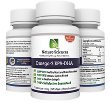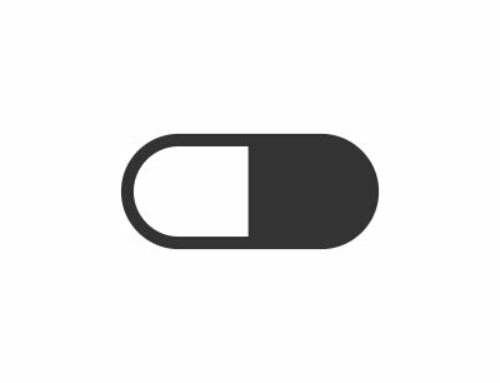
While it’s true that the younger you are, the better quality eggs you have (and with this better chances to get pregnant), it’s problematic in our society for a young woman to gather together the resources necessary to raise and provide for a child.
More and more we tend to delay finding a permanent mate. Instead, we develop careers, build security, and basically lay-in supplies for a multiyear commitment to raising a child.
The problem with that strategy is that once we start down our career paths, sometimes it can be frightening to consider giving it all up.
Yes, it would be great to have a child, but will that stop us from ever getting back to our career? What if we don’t want to get back?
So we wait, equivocate and delay, until we notice that we’re 35 and looking at the ovarian reserve melting its last eggs down.
Until we became 30, we had about a 20% chance of conceiving every month. Not bad odds. But once the woman reaches the age of 35, her fertility starts to decline and it can take quite some effort to slow down the biological clock for even a few minutes.
How long to try to conceive before seing a doctor?
If you’re in good physical shape, you can have high fertility (meaning qood quality eggs which give good embryos and babies) up to the age 37-38, but after that egg quality definitely declines.
The drop in fertility between 35 and 40 is substantial: the chance to get pregnant goes from 20-25% down to about 5% per cycle.
This happens because the eggs are aging and deteriorating in quality, making them more difficult to fertilize. That amounts to about a 60% chance per year that one will catch and even less that it the pregnancy will result in a live birth.
This is why I keep telling for years: if you’re in your 30s, and have been trying to get pregnant for six months with no success, do ask for help.
What’s the point in waiting too long before seeing a doctor?
I totally don’t understand why women over 35 (who already lost 90% of their egg suply) should first try to conceive for a year, then waste another year or more with tests and searchig for the right fertility specialist? Just to find out what they should have known the whole way through: what is the status of their ovarian reserve? How many eggs do they left?

How can you improve egg quality?
Even if you’re over 35 , you probably don’t have to think in terms of massive interventions in order to improve egg quality. That is seldom required.
For example, a simple change in diet can be an immense aid. Although several diets are good for improving fertility in both women and men, Mediterranean diet has gained a substantial scientific support over the last years and proved helpful in couples struggling with fertility.
Making simple changes to your diet and designing a smart supplementing strategy can already be enough to get pregnant. Yes – there is some genetics involved in egg quality. Aging, too remains the worst enemy of a woman who is trying to get pregnant. Still, good eggs are, to a great extent, a lifestyle choice.
Good eggs are up to you. Good eggs are up to me not being lazy to introduce a few minor changes to my diet and lifestyle changes and sticking to them. I’ve tried that twice and it worked.
OK – some woman may still not be able to get pregnant naturally and will need minor fertility medications in spite of introducing changes to their lifestyle, so what? Better quality eggs always have better chances to become babies, either naturally or with the help of technologies.
In the first couple of months of trying to improve egg quality, it’s best to keep in mind that the old habits will work against you. Both you and your partner must stop smoking. Eat only fresh, organic, real food.
Get regular exercise whether it amounts to riding bicycles, or a nice low impact activity, like taking long extended walks. (Guys: make sure you have a proper bicycle seat that doesn’t restrict genital circulation—with the built in channel down the center of the seat.)
And both of you should have your caffeine intake under control, please abandon alcohol (apart from an occasional glass of red wine because of its resveratrol magic), stay hydrated, and take daily supplements.
I wish I could say, take multivitamins as suggested by your OB/GYN. Unfortunatelly, I can’t. Doctors are busy people whose highest priority is not helping women to conceive naturally and without their help.
And how often should you have sex when trying to get pregnant?
Have sex as often as you like, but only make sure to not skip the most fertile time of the month.
Sperm can live up to 6 days in a friendly environment, so consider having an intercourse as early as day 8 of your cycle. Of couse, much more important than not missing the day 8, is not missing that one day prior to ovulation.
Having sex exactly on the ovulation day is still OK but not not the best timing for the intercourse if you are serious about getting pregnant. For some strange reason which we don’t fully understand yet, the conception has the best chances to occur if the sperm is waiting for the egg to come down the Fallopian tube, not vice versa.
Woman ovulate anywhere between days 10 and 20 of their cycle.
You know when you ovulate, right?
It is really not difficult to narrow the ovulation down to one day and if you are a woman over 35, you may even know exact hours when you ovulate.
Just ask your body and it will tell you.
Supplements which are scientifically proven to increase egg quality:
(DHEA, CoQ10, Vitamin D3, Omega-3)
To find out when you ovulate:











